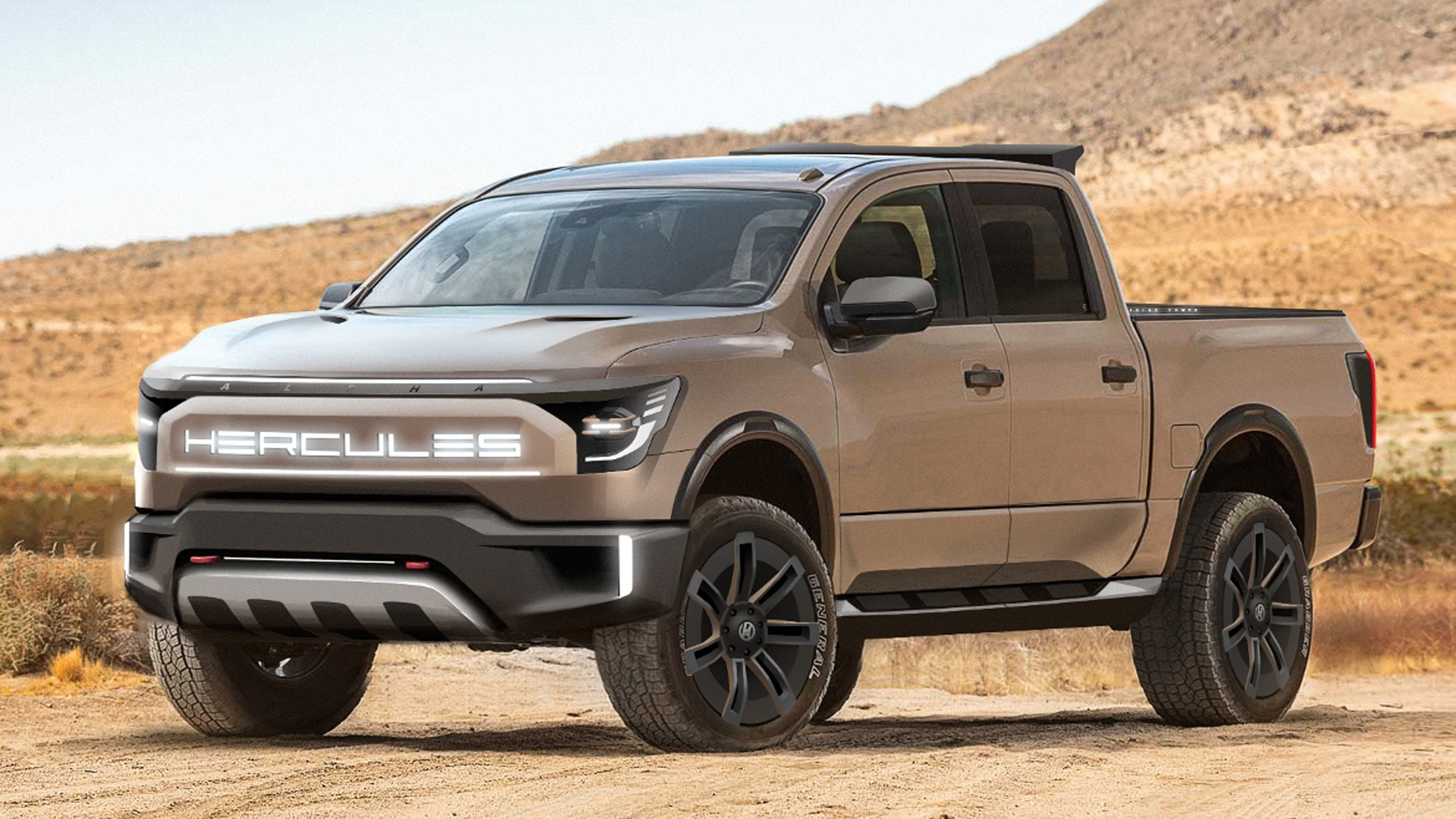

It doesn’t take much to convince investors that you have a world-changing EV pickup truck on the way. Over the past year, we’ve seen capital get thrown at companies like Nikola and Lordstown on the hopes they’ll become the next Tesla, for decidedly mixed results, to put things politely. But the bar may be even lower now thanks to aspiring EV producer Hercules Electric Vehicles, whose only photos of its electric truck consist of a digitally altered Nissan Titan.
Observed by Motor1‘s Senior Editor Jeff Perez on Twitter, the banner image of the Hercules Alpha pickup on the startup’s website is simply a doctored photo of a 2020 Nissan Titan Pro-4X. The picture above, and its founders’ admittedly solid resumés, were among what Hercules had to show potential investors when it asked them for $20 million in March.

But there may be something to the Nissan connection, as comical as the illustration is. Last November, Bloomberg reported Hercules was actually in contact with the source of its ‘shopped truck, Nissan, which was reportedly discussing buying electric powertrains in return for sharing Titan parts with Hercules.
The arrangement would presumably allow Nissan to expedite a rival to the Ford F-150 Lightning, from which Hercules could build a luxury truck, one not entirely unlike the grotesque, Ram-based Aznom Palladium. (Then again, the same was said about Nikola and General Motors, so skepticism is probably wise.)

Hercules touts the Alpha as a high-performance yet ecologically responsible electric utility vehicle, one with a design from Pininfarina and reportedly due for launch in mid-2022. The Alpha, it hopes, will make heavy use of carbon composites, and use solid-state batteries (not yet a commercially viable technology) to power quad-motor four-wheel-drive with outputs as high as 1,000 horsepower and 800 pound-feet of torque. It’s also supposed to have a highly customizable, optionally vegan interior, and a solar tonneau cover capable of generating 1.2 kilowatts. It all sounds very ambitious, as these EV startups tend to go.
The Detroit-based firm, however, has yet to declare its apparent negotiations with Nissan a success, or the $20 million in funding it seeks secure—it at least has more integrity than some wannabe carmakers. But with competing electric trucks on the verge of swamping the market, from legacy players like Ford and GMC to upstarts like Rivian, even a declaration of funding and a Nissan partnership would put Hercules on its back foot.
Now that the auto industry’s giants have awoken, there’s no place for EV startups to cling to renders and renders alone.
Got a tip or question for the author? You can reach them here: james@thedrive.com